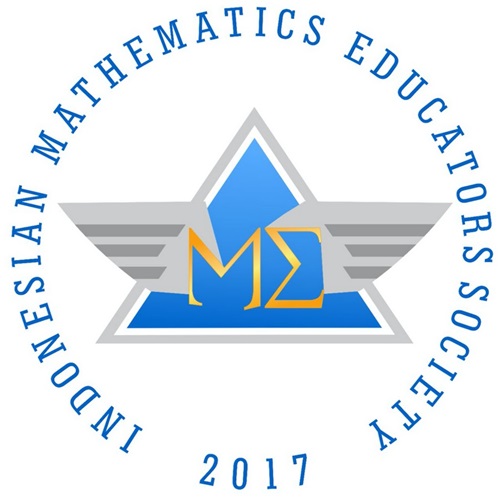Students' ‘Looking Back’ in Solving Algebraic Word Problems
DOI:
https://doi.org/10.22437/edumatica.v14i01.29404Keywords:
algebra word problem, looking back, mathematical problem, problem-solvingAbstract
Solving mathematics problems is a complex cognitive process that involves a series of steps. These steps typically include understanding the problem, devising a plan, carrying out the plan, and looking back (checking the solution). While each of these steps is crucial, the ‘looking back’ step has not received much attention in mathematics education research. This study investigated Grade 10 mathematics students’ looking back in solving algebraic word problems in Namibia. The study followed a qualitative approach. The sample of the study was 351 Grade 10 students from ten secondary schools in the Ohangwena Region in Namibia. Data was collected using the Algebra Word problem-solving Achievement Test and Interview. The results show that, in general, the students did not look back on their solutions to the algebraic word problem. While some students indicated that looking back necessitates the consolidation of their work, others said looking back on their solutions could be time-wasting and confusing. These findings point to the need for mathematics teachers in Namibia to incorporate and model the looking-back step of mathematical problem-solving in their mathematics teaching.
Downloads
References
Albin, S., & Von Watzdorf, A. (2019). A Comparative Analysis of Word Problems in Six Junior Primary Mathematics Textbooks in Namibia. Journal of Engineering Research and Aplication, 9(6), 47–55. Retrieved from http://hdl.handle.net/11070/2764
Ambrus, A., & Barczi-Veres, K. (2022). Realizing the Problem-Solving Phases of Pólya in Classroom Practice. Teaching Mathematics and Computer Science, 20(2). https://doi.org/10.5485/tmcs.2022.0540
Arfiana, A., & Wijaya, A. (2018). Problem Solving Skill of Students of Senior High Schools and Islamic High Schools in Tegal Regency in Solving the Problem of PISA Based on Polya’s Stage. Jurnal Riset Pendidikan Matematika, 5(2), 211–222. https://doi.org/10.21831/jrpm.v5i2.15783
Bush, S. B., & Karp, K. S. (2013). Prerequisite Algebra Skills and Associated Misconceptions of Middle Grade Students: A Review. Journal of Mathematical Behavior, 32(3). https://doi.org/10.1016/j.jmathb.2013.07.002
Cai, J., & Brook, M. (2006). Looking Back in Problem Solving. Mathematics Teaching, (196).
Csachová, L. (2021). Looking back in Problem Solving with Future Primary School Teachers. Broadening Experiences in Elementary School Mathematics International. Symposium Elementary Mathematics Teaching. Prague.
Directorate of National Examinations and Assessment. (2015). Examiners’ Reports. DNEA Printers.
Directorate of National Examinations and Assessment. (2016). Examiners’ Reports. DNEA Printers.
Directorate of National Examinations and Assessment. (2017). Examiners’ Report. DNEA Printers.
Directorate of National Examinations and Assessment. (2018). Examiners’ Reports. DNEA Printers.
Fitriani, F., Hayati, R., Sugeng, S., Srimuliati, S., & Herman, T. (2022). Students’ Ability to Solve Mathematical Problems Through Polya Steps. Journal of Engineering Science and Technology, 17.
Freeman-Green, S. M., O’Brien, C., Wood, C. L., & Hitt, S. B. (2015). Effects of the SOLVE Strategy on the Mathematical Problem Solving Skills of Secondary Students with Learning Disabilities. Learning Disabilities Research and Practice, 30(2). https://doi.org/10.1111/ldrp.12054
In’am, A. (2014). The Implementation of the Polya Method in Solving Euclidean Geometry Problems. International Education Studies, 7(7). https://doi.org/10.5539/ies.v7n7p149
Jarosz, A. F., & Jaeger, A. J. (2019). Inconsistent Operations: A Weapon of Math Disruption. Applied Cognitive Psychology, 33(1). https://doi.org/10.1002/acp.3471
Jupri, A., & Drijvers, P. (2016). Student Difficulties in Mathematizing Word Problems in Algebra. Eurasia Journal of Mathematics, Science and Technology Education, 12(9). https://doi.org/10.12973/eurasia.2016.1299a
Khoshaim, H. B. (2020). Mathematics Teaching Using Word-Problems: Is It a Phobia! International Journal of Instruction, 13(1). https://doi.org/10.29333/iji.2020.13155a
Lee, S. Y. (2016). Students’ Use of “Look Back” Strategies in Multiple Solution Methods. International Journal of Science and Mathematics Education, 14(4). https://doi.org/10.1007/s10763-014-9599-9
Makwakwa, E. G., Mogari, D., & Ogbonnaya, U. I. (2024). First-Year Undergraduate Students’ Statistical Problem-Solving Skills. Teaching Statistics, 46(1). https://doi.org/10.1111/test.12359
Nurkaeti, N. (2018). Polya’s Strategy: An Analysis of Mathematical Problem Solving Difficulty in 5th Grade Elementary School. EduHumaniora | Jurnal Pendidikan Dasar Kampus Cibiru, 10(2). https://doi.org/10.17509/eh.v10i2.10868
Nursyahidah, F., Saputro, B. A., & Rubowo, M. R. (2018). Students Problem Solving Ability Based on Realistic Mathematics with Ethnomathematics. JRAMathEdu (Journal of Research and Advances in Mathematics Education), 3(1). Retrieved from http://journals.ums.ac.id/index.php/jramathedu
Özdemir, F., & Çelik, H. C. (2021). Examining Problem-Solving and Problem-Posing Skills of Pre-Service Mathematics Teachers: A Qualitative Study. Education Quarterly Reviews. https://doi.org/10.31014/aior.1993.04.04.405
Phuntsho, U., & Dema, Y. (2019). Examining the Effects of Using Polya’s Problem- solving Model on Mathematical Academic Achievement and Analyzing Ability of the Fourth Grade Students. Asian Journal of Education and Social Studies. https://doi.org/10.9734/ajess/2019/v5i230142
Polya. (1973). How to Solve It. In Stochastic Optimization in Continuous Time. https://doi.org/10.1017/cbo9780511616747.007
Powell, S. R., Namkung, J. M., & Lin, X. (2022). An Investigation of Using Keywords to Solve Word Problems. Elementary School Journal, 122(3). https://doi.org/10.1086/717888
Sikukumwa, E. (2017). Types of Strategies Used to Solve Algebraic Word Problems by Grade 12 Ordinary Level Mathematics Learners of Kavango East region of Namibia. University of Namibia.
Simatupang, R., Elvis Napitupulu, E., & Syahputra, E. (2019). Analysis of Mathematical Problem-Solving Abilities Taught Using Problem-Based Learning. American Journal of Educational Research, 7(11). https://doi.org/10.12691/education-7-11-6
Tjoe, H. (2019). “Looking Back” to Solve Differently: Familiarity, Fluency, and Flexibility. https://doi.org/10.1007/978-3-030-10472-6_1
Verschaffel, L., Schukajlow, S., Star, J., & Van Dooren, W. (2020). Word Problems in Mathematics Education: A Survey. ZDM - Mathematics Education, 52(1). https://doi.org/10.1007/s11858-020-01130-4
Wang, A. Y., Fuchs, L. S., & Fuchs, D. (2016). Cognitive and Linguistic Predictors of Mathematical Word Problems With and Without Irrelevant Information. Learning and Individual Differences, 52. https://doi.org/10.1016/j.lindif.2016.10.015
Downloads
Published
How to Cite
Issue
Section
License
Copyright (c) 2024 Hesekiel K. Iilonga, Ugorji Ogbonnaya

This work is licensed under a Creative Commons Attribution-NonCommercial-ShareAlike 4.0 International License.







